
All Recent Reviews of
Freedom at Midnight
Reviewers on this page:
Anuj Kumar
Sonal Pandya
Srivathsan Nadadhur
Uday Bhatia
Ishita Sengupta
Shubhra Gupta
Upma Singh
Priyanka Roy
Saibal Chatterjee
Rahul Desai
About Freedom at Midnight
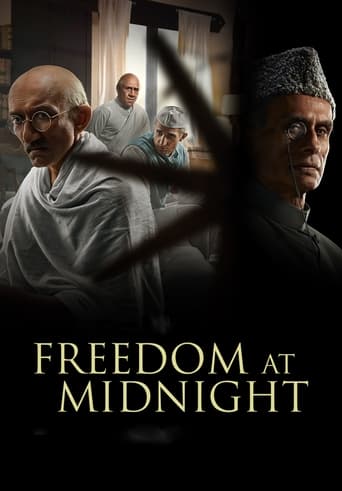
| Title: | Freedom at Midnight |
|---|---|
| Plot: | Freedom at Midnight is the electrifying story of India's struggle for independence. Based on the bestselling book of the same name, it recounts the partition of India and Pakistan, and the religious and socio-political dynamics of the era. |
| Cast: | Sidhant Gupta, Chirag Vohra, Rajendra Chawla, Arif Zakaria, Ira Dubey, Rajesh Kumar |
| Director: | Nikkhil Advani |
| Cinematography: | Malay Prakash |
| Editor: | Shweta Venkat Mathew |
Freedom at Midnight
Anuj Kumar
The Hindu
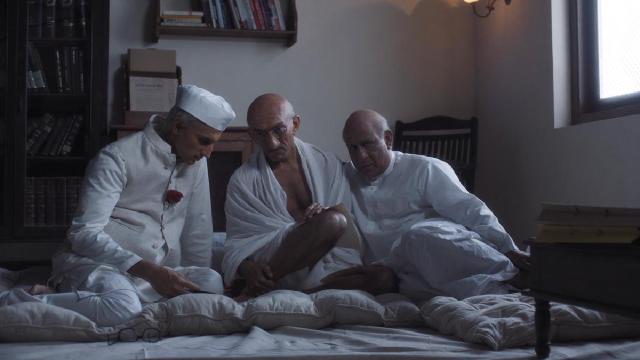
A pacy, layered account of Partition politics
A fairly faithful adaptation of Dominique Lapierre and Larry Collins’ non-fiction book ‘Freedom At Midnight’, director Nikkhil Advani’s series presents a captivating account of the painful events surrounding India’s Independence whose impact is diminished by its somewhat squinted gaze and some ordinary casting choices
Once a purveyor of Bollywood entertainment, director Nikkhil Advani of late is exploring drama surrounding real, epochal events – life-altering situations where the decisions are not made based on right and wrong, but on the pretext of consequences. A slippery ground to navigate, he got it right in Mumbai Diaries set against 26/11 terror attacks in the metropolis and doesn’t disappoint in Freedom At Midnight either.
Freedom at Midnight
Sonal Pandya
Times Now, Zoom
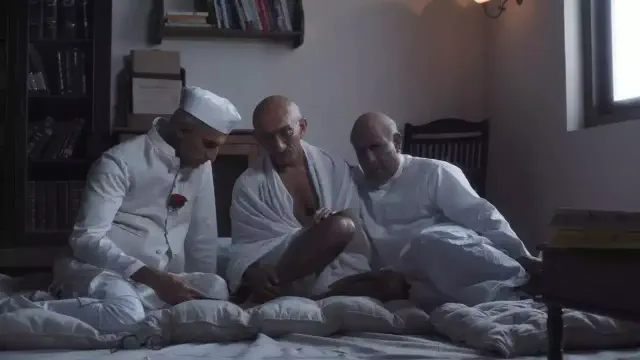
Nikkhil Advani's Faithful Adaptation On Partition Is Respectful And Compelling
Adapted from the book of the same name, the period drama takes viewers behind closed doors to deals and compromises that led to the Partition of India and Pakistan.
One of the most painful and fraught chapters of India’s history is brought to life in the SonyLIV series Freedom at Midnight, created by Nikkhil Advani. With a large ensemble cast of Indian and foreign actors, the series moves forwards and backwards in time to depict what went through the minds of India’s political leaders as they bargained and argued with the British empire for their freedom. Through the seven episodes, the threat of partition looms large, and the tense finale brings with it a melancholic feeling that lingers.
Freedom at Midnight
Srivathsan Nadadhur
(for Binged)
Independent Film Critic
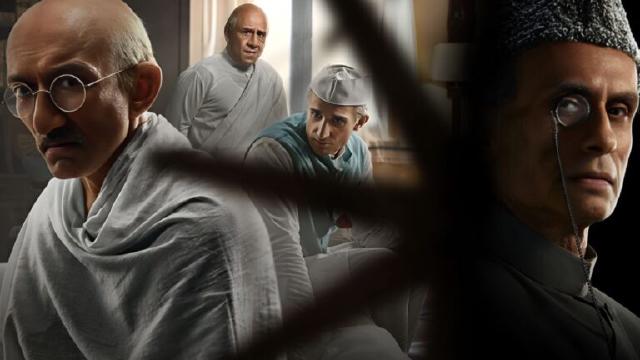
A Sensitive, Well-crafted Show On The Politics Around Partition
After years of struggle, the idea of an independent India doesn’t seem a distant dream. The British looks ready to hand over the reins to the country by 1946, but at what cost? Nehru is at odds with Gandhi’s ideals and the interests of the Congress party, while Patel prefers to be the bad cop. A bitter and ailing Jinnah is desperate for the formation of Pakistan. Who has the last laugh?
Freedom at Midnight
Uday Bhatia
Mint Lounge
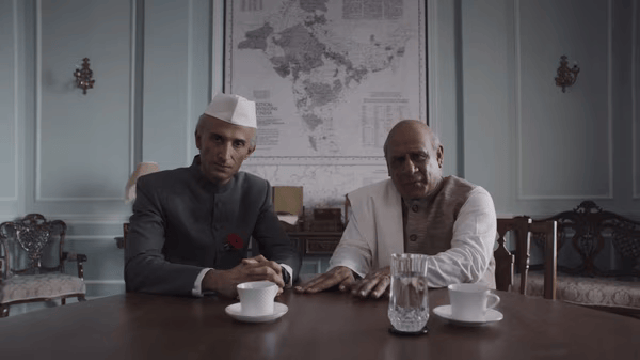
Independence, warts and all
‘Freedom at Midnight’ is flawed in too many ways to deliver on its promise of showing an untold history of India on the brink of independence.
It’s 1946, Partition is starting to look like a real possibility, and the Congress High Command isn’t a happy place. The visiting Akali leaders are militant, Nehru is getting worked up, and Patel’s biscuit, which he isn’t paying attention to, is getting soggy. At the exact moment Nehru asks the Akalis what they want, half of it disintegrates and falls into the tea. The next shot is Jinnah in his garden, snipping a rose stem.
Freedom at Midnight
Ishita Sengupta
(for OTT Play)
Independent Film Critic
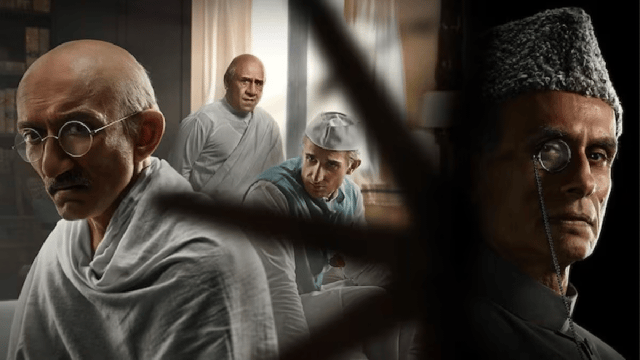
Nikhil Advani’s Pre-Independence Drama Is Immensely Watchable
Freedom at Midnight is about the historicity of 1947 conveyed through the lives of those who curated the history.
With Freedom at Midnight, Nikhil Advani continues looking at big cultural moments through the microscopic gaze of an insider. Across the two seasons of his breakout show Mumbai Diaries, the filmmaker portrayed pressing social crises through the labour of medical practitioners attending to the casualties. This shift in slant sidestepped the showiness prone to cinematic excess and allowed for a more intimate rendering of public events, transforming, therefore, the narrative around them. In his latest long-form work, Advani turns his gaze to the wide spectrum of India’s independence and reiterates his style of focusing on the bureaucratic bottleneck, telling the story therefore of the people living inside towering buildings and not on the street. Freedom at Midnight is about the historicity of 1947 conveyed through the lives of those who curated the history.
Freedom at Midnight
Shubhra Gupta
The Indian Express
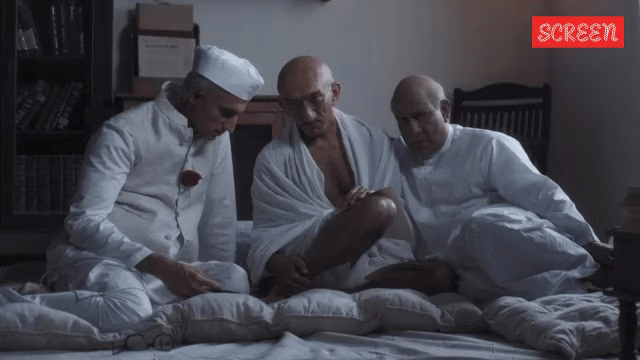
A relatable, racy-pacy account of build-up to India’s tumultuous independence
Sprawling yet pacy, the Nikkhil Advani series brings to life the story of India, and Pakistan, which came into existence at that stroke of the midnight hour immortalised in the haunting words of Nehru.
The choice of using ‘Freedom At Midnight’, Larry Collins and Dominique Lapierre’s account of the tumultuous build-up to India’s independence in August 1947, as the basis for the seven-part web series of the same name achieves one thing above all else: adapting from source material which has been in existence for several years, especially from the celebrity author duo who couldn’t be accused of being either pro-India, or pro-Pakistan, frees creator and director Nikkhil Advani of being accused similar bias.
Freedom at Midnight
Upma Singh
Navbharat Times
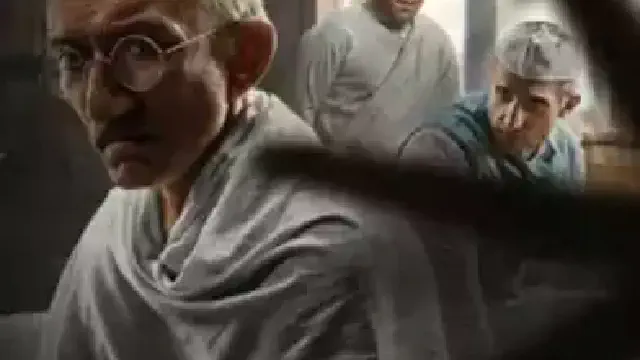
सालों लंबी क्रांति और अनगिनत शहीदों की कुर्बानी के बाद अंग्रेजी हुकूमत से 1947 में मिली आजादी के बदले हिंदुस्तान के दिल पर विभाजन का जो जख्म लगा, वह टीस 77 साल बाद आज भी महसूस होती है। मगर क्या धर्म के नाम पर हुआ देश का यह बंटवारा जरूरी था? क्या यह रुक सकता था? देश के भविष्य से जुड़े इस निर्णायक फैसले में शामिल पंडित नेहरू, महात्मा गांधी, सरदार पटेल या मोहम्मद अली जिन्ना जैसे राजनेताओं का क्या रुख रहा? इतिहास के सबसे त्रासद बंटवारे को लेकर ऐसे ही कई अनछ़ुए पन्ने पलटती है, निखिल अडवानी की वेब सीरीज ‘फ्रीडम एट मिडनाइट’। यह सीरीज लैरी कॉलिन्स और डॉमनिक लैपियर की इसी नाम से लिखी बहुचर्चित किताब पर आधारित है, जो ब्रिटिश राज का सूरज ढलने के बाद एक स्वतंत्र हिंदुस्तान के बनने के दौरान हुई राजनीति और सामाजिक हालातों की गहराई से पड़ताल करती है।
Freedom at Midnight
Priyanka Roy
The Telegraph
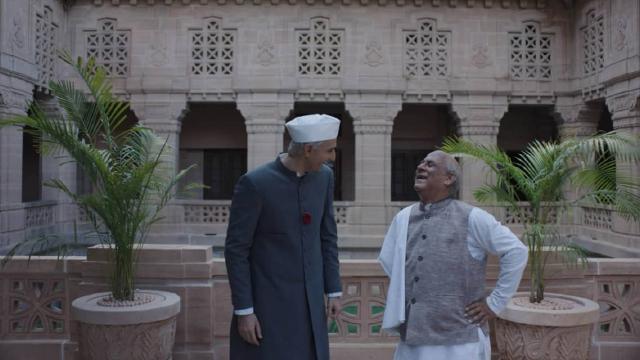
Fashions a high-stakes drama built on one of the most tumultuous chapters in our history
“At the stroke of the midnight hour, when the world sleeps, India will awake to life and freedom”. This momentous line from Jawaharlal Nehru’s Tryst with Destiny speech, delivered on the eve of India’s Independence on August 15, 1947, remains etched in the annals of history. What also remains an indelible part of our country’s birth into freedom after 200 years of colonial rule is the bloodied, agonising, gut-wrenching division of one nation into two.
Freedom at Midnight
Saibal Chatterjee
NDTV
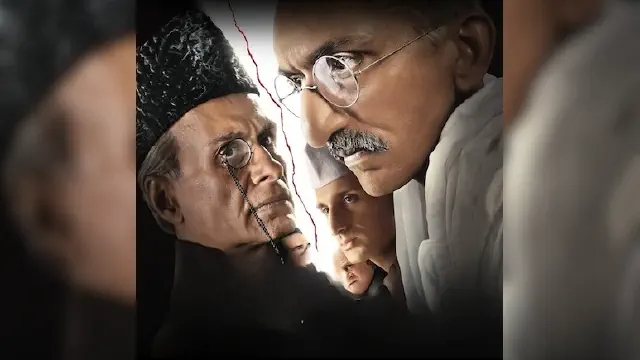
Crafted With Utmost Diligence, The Show Gives History Its Due
Freedom at Midnight isn't driven by A-list stars but by actors who painstakingly and confidently flesh out the towering historical figures
In Freedom of Midnight, showrunner and director Nikkhil Advani, working with a script by a team of six writers, blends solid historicity with elements of fiction and imagination to bring to the screen the agonizing final leg of India’s freedom struggle. The SonyLIV drama series produced by Emmay Entertainment and StudioNext, is crafted with utmost diligence. It blends grandeur with intimacy, swept with precision, sustained gravitas with an acute awareness of the timeless contemporaneity of political decisions of far-reaching consequences made in an era of great upheavals by the architects of a free nation forged in fire.
Freedom at Midnight
Rahul Desai
The Hollywood Reporter India
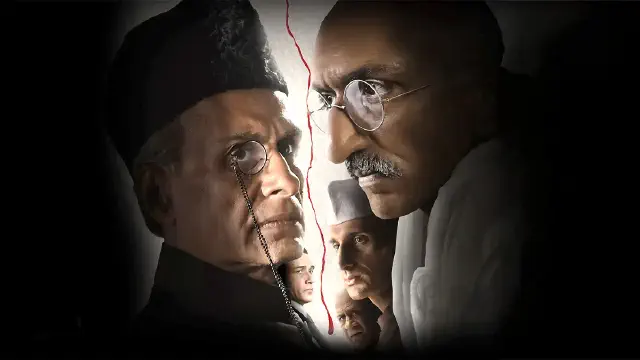
A Brave And Bulky Historical Thriller
Nikkhil Advani’s 7-episode Partition drama is ambitious, campy and politically expressive.
As children, most of us learn to see 1947 as India’s finest moment. The event is simple: India gained freedom from the greedy British Raj and that’s that. As teenagers, we start to sense that perhaps it wasn’t all smooth and happy. With independence came the pressure to move out and grow up. But it doesn’t matter much because, either way, colonialism ended. As we get older, however, a full and bittersweet picture emerges: a nation is free, only to be violently divided into two on the basis of religion. It was never as simple as the British leaving or a newly born country celebrating its revolutionaries. This fuller picture has been molded — and revised — into shapeless stories by a future reeling from its scars. History is what happened, but these days, history is what we choose to believe.